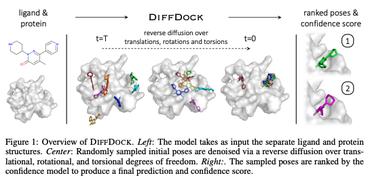Search Results for author: Philip John Gorinski
Found 13 papers, 1 papers with code
Automatic Unit Test Data Generation and Actor-Critic Reinforcement Learning for Code Synthesis
1 code implementation • 20 Oct 2023 • Philip John Gorinski, Matthieu Zimmer, Gerasimos Lampouras, Derrick Goh Xin Deik, Ignacio Iacobacci
The advent of large pre-trained language models in the domain of Code Synthesis has shown remarkable performance on various benchmarks, treating the problem of Code Generation in a fashion similar to Natural Language Generation, trained with a Language Modelling (LM) objective.
The Regular Expression Inference Challenge
no code implementations • 15 Aug 2023 • Mojtaba Valizadeh, Philip John Gorinski, Ignacio Iacobacci, Martin Berger
We propose \emph{regular expression inference (REI)} as a challenge for code/language modelling, and the wider machine learning community.
Graph Attention with Hierarchies for Multi-hop Question Answering
no code implementations • 27 Jan 2023 • Yunjie He, Philip John Gorinski, Ieva Staliunaite, Pontus Stenetorp
Multi-hop QA (Question Answering) is the task of finding the answer to a question across multiple documents.
Relational Graph Convolutional Neural Networks for Multihop Reasoning: A Comparative Study
no code implementations • 12 Oct 2022 • Ieva Staliūnaitė, Philip John Gorinski, Ignacio Iacobacci
Multihop Question Answering is a complex Natural Language Processing task that requires multiple steps of reasoning to find the correct answer to a given question.
Structured Q-learning For Antibody Design
no code implementations • 10 Sep 2022 • Alexander I. Cowen-Rivers, Philip John Gorinski, Aivar Sootla, Asif Khan, Liu Furui, Jun Wang, Jan Peters, Haitham Bou Ammar
Optimizing combinatorial structures is core to many real-world problems, such as those encountered in life sciences.
Improving Commonsense Causal Reasoning by Adversarial Training and Data Augmentation
no code implementations • 13 Jan 2021 • Ieva Staliūnaitė, Philip John Gorinski, Ignacio Iacobacci
Determining the plausibility of causal relations between clauses is a commonsense reasoning task that requires complex inference ability.
$\alpha$VIL: Learning to Leverage Auxiliary Tasks for Multitask Learning
no code implementations • 1 Jan 2021 • Rafael Kourdis, Gabriel Gordon-Hall, Philip John Gorinski
In such settings, it becomes important to estimate the positive or negative influence auxiliary tasks will have on the target.
Improving End-to-End Speech-to-Intent Classification with Reptile
no code implementations • 5 Aug 2020 • Yusheng Tian, Philip John Gorinski
In this paper, we suggest improving the generalization performance of SLU models with a non-standard learning algorithm, Reptile.
 Ranked #12 on
Spoken Language Understanding
on Fluent Speech Commands
(using extra training data)
Ranked #12 on
Spoken Language Understanding
on Fluent Speech Commands
(using extra training data)
Learning Dialog Policies from Weak Demonstrations
no code implementations • ACL 2020 • Gabriel Gordon-Hall, Philip John Gorinski, Shay B. Cohen
Deep reinforcement learning is a promising approach to training a dialog manager, but current methods struggle with the large state and action spaces of multi-domain dialog systems.
Show Us the Way: Learning to Manage Dialog from Demonstrations
no code implementations • 17 Apr 2020 • Gabriel Gordon-Hall, Philip John Gorinski, Gerasimos Lampouras, Ignacio Iacobacci
We present our submission to the End-to-End Multi-Domain Dialog Challenge Track of the Eighth Dialog System Technology Challenge.
Named Entity Recognition for Electronic Health Records: A Comparison of Rule-based and Machine Learning Approaches
no code implementations • 10 Mar 2019 • Philip John Gorinski, Honghan Wu, Claire Grover, Richard Tobin, Conn Talbot, Heather Whalley, Cathie Sudlow, William Whiteley, Beatrice Alex
This work investigates multiple approaches to Named Entity Recognition (NER) for text in Electronic Health Record (EHR) data.
What's This Movie About? A Joint Neural Network Architecture for Movie Content Analysis
no code implementations • NAACL 2018 • Philip John Gorinski, Mirella Lapata
This work takes a first step toward movie content analysis by tackling the novel task of movie overview generation.









